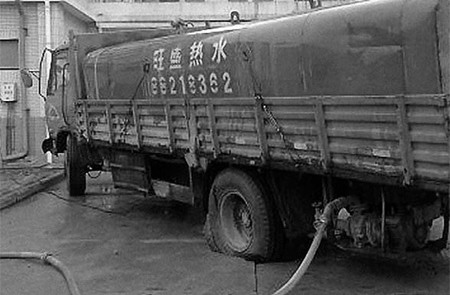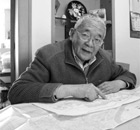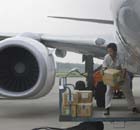Society
University denies TV report on lead
By Li Xinzhu (China Daily)
Updated: 2010-04-20 08:24
 |
Large Medium Small |
|
 A truck releases recycled water for bath use at Jiangnan University. Representatives of the university deny that the recycled waste water contains harmful levels of heavy lead. [Provided to China Daily] |
The local TV program First View reported about the "recycled water" after it had received an anonymous letter saying that Wangsheng Hot Water Supply has been recycling waste water from a steel company and delivering it to universities and hotels for bathing.
The TV report received widespread attention from the public since it aired, prompting various posts online, some of which called the case "Steel Water Gate".
A netizen named xudgxudg wrote on a forum at NETEASE.com: "Poor students," a sentiment echoed by many.
It is not the first time the bathhouse at Jiangnan University has been in the spotlight.
In 2006, the school adopted a new billing system in the bathhouses, according to which students were charged 0.2 yuan for every minute they spent in the shower. The move attracted public interest, which led to a discussion about water saving and waste prevention.
This time, the university closed its bathhouse immediately after the TV report and posted an announcement on its website on Saturday, claiming that the bathhouse will not be put back in use until it receives the outcome of the investigation by local authorities.
Bathhouses at the university reopened on Monday.
"The result has shown that bath water at our university is qualified for use, with no excessive lead content," said Jiangnan University spokesman Wu Zhengguo. "We conduct routine tests each year to ensure the water safety."
According to Wu, the local health bureau conducted its own investigation shortly after the TV program aired. The health bureau examined the whole supply chain involved in the story, including the water source, the supplier and the water tank at the university.
"There is nothing abnormal," he said.
When Wu was asked about the water sample that First View sent for testing, he replied: "They cannot prove the original source of the sample. We have reason to doubt its truthfulness."
In addition to the university, the hot water supplier, Wangsheng Hot Water Supply, has denied the report that appeared on First View.
"I have no idea why they produced such a story," said Tang Chuanwang, the owner of Wangsheng Hot Water Supply. "The water we supply all comes from the local waterworks."
When Tang was asked about First View having filmed a Wangsheng truck waiting outside the Qiangsheng Steel Company, which the program presented as waiting for recycled waste water, he said: "We use the steam facilities at the steel company to heat the water."
Tang told China Daily that last year he had also been anonymously reported to the department of taxation and to the industrial and commercial administration bureau, which prompted him to inform the police.
"After all, I am innocent," he said.
"I think these are tricks from my competitors."











